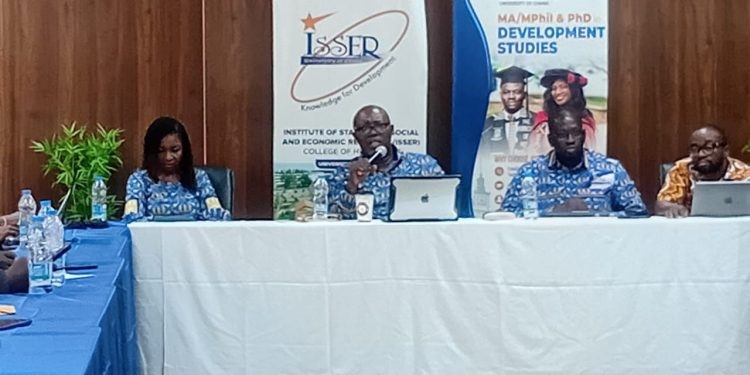The Institute of Statistical, Social and Economic Research (ISSER) has warned that the government’s renegotiated power purchase agreements (PPAs) may offer short-term fiscal relief but will not resolve the deep-rooted structural problems undermining Ghana’s energy sector.
In the 2026 Budget Statement, government announced that all Independent Power Producer (IPP) contracts had been renegotiated, unlocking over US$250 million in savings and restructuring GH¢1.1 billion in sector debt over the next four years.
But speaking at ISSER’s Post-Budget Discussion held on Wednesday, November 19, 2025, the institute’s Director, Prof. Robert Darko Osei, cautioned that these savings are temporary and do little to address the fundamental weaknesses choking the energy value chain.
Prof. Osei pointed to inefficiencies in power distribution as a major source of recurring debt.
“Your transmission and distribution losses are huge. Our transmission losses are around 27% or so. That is significant,” he said.
Although he acknowledged improvements in commercial losses and a more robust revenue performance by the Electricity Company of Ghana (ECG), he insisted that these gains are still far from adequate.
“That is not to say that you can get away with such high transmission costs. So the ECG discussions will have to go on,” he noted.
Prof. Osei warned that without a thorough restructuring of the distribution segment in particular, Ghana will slide back into the same debt cycle—regardless of renegotiated tariffs or payment terms with IPPs.
“If we don’t get our distribution right… we’ll still negotiate with the IPPs and pay, spreading our debts over a longer period. But we’ll still have debt to pay because it will not translate to making the IPPs profitable,” he added.
ISSER argued that the fiscal space created by the renegotiations must now be channelled into long-term sector reforms—improving governance, cutting technical losses, and establishing a sustainable pricing and planning framework to support industrial expansion.



